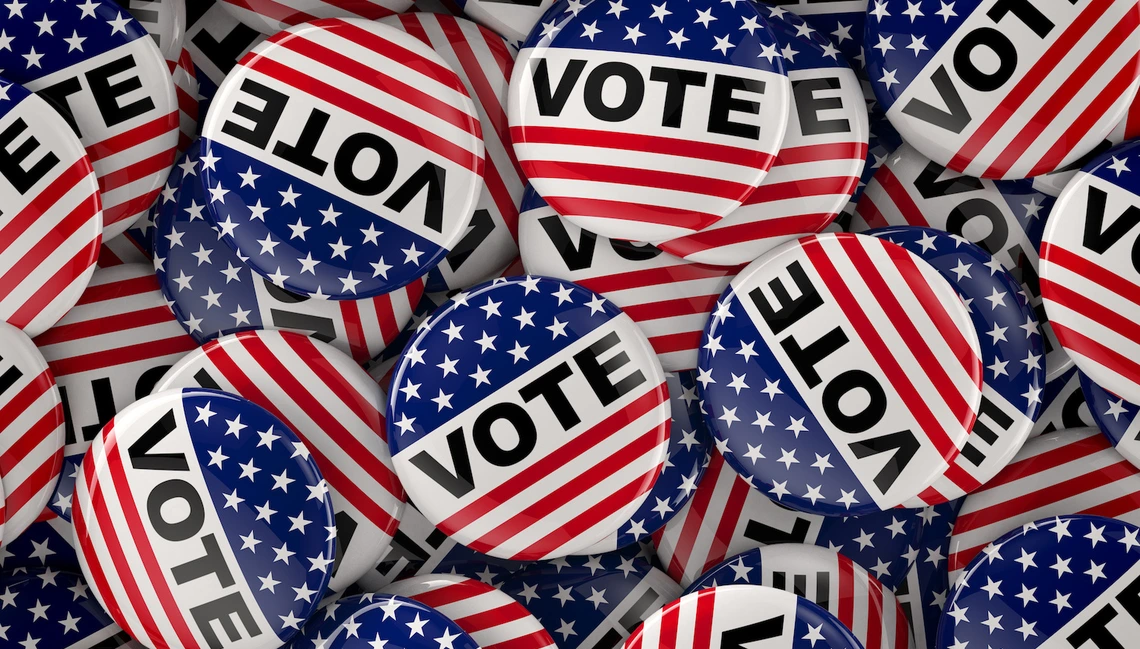Symbolic support: Study shows campaign merchandise can lead to 'political slacktivism'

Hats, shirts and buttons make it clear who someone supports in an election – but buying them may actually make people less likely to volunteer, advocate or even vote, according to University of Arizona research.
T-shirts, hats, mugs and bumper stickers are popular ways to show support for a candidate during election season, but buying political merchandise may actually make people less likely to volunteer, advocate or even vote, according to a study out of the University of Arizona's Eller College of Management.
A research team led by Anastasiya Ghosh, associate professor of marketing, examined this phenomenon, known as "political slacktivism," in a study published in the Journal of Public Policy and Marketing. The team included Pureum Kim from the University of North Dakota and Gustavo Schneider from Salisbury University in Maryland.
"Political slacktivism is when someone takes a symbolic action, like buying a T-shirt, but doesn't follow through with deeper engagement," said Ghosh, who is also the Susan and Philip Hagenah Endowed Faculty Fellow. "It gives people the sense that they've done something important, even if they haven't actually voted or volunteered."

Anastasiya Ghosh
The new study highlights the role of impression management, or the ways people try to influence how others see them, in political behavior, Ghosh said. In many cases, people may be more motivated by signaling their support for a cause than by actually making a contribution. She said this is because public displays can make people feel like they have already "done their part" for a campaign.
"We found that wearing political merchandise in public – where others can see it – had a strong signaling effect," Ghosh said. "But when people wore it in private settings, that effect all but disappeared. It's really about demonstrating your support to others."
The team ran a series of experiments comparing the behavior of political merchandise buyers with donors who gave money to a cause but did not receive a physical item. These included analyzing historical survey data from the 2016, 2018 and 2020 election cycles, tracking real-world behavior during an election cycle, and conducting a lab experiment involving students wearing political pins.
The team's experiment involving college students best illustrated the study's main findings: Participants who received political buttons and wore them in public were willing to complete fewer campaign tasks than those who were told that a monetary donation had been made in their name.
"What really surprised me was that people who bought merchandise were actually less likely to vote," Ghosh added. "I expected that they might skip a rally, but voting is such a fundamental action. I didn't expect the effect to extend that far."
For example, in one study of eligible voters who made at least one contribution to a 2020 election campaign, researchers found that those who purchased political merchandise were 91% less likely to vote and 92% less likely to volunteer than those who only made monetary donations.
Ghosh said the slacktivism effect was more pronounced among those who spent less than about $94 on merchandise. The effect faded as the amount spent on merchandise increased, suggesting bulk buyers might be more committed.
Takeaway for campaigns
Political merchandise is big business, raising tens of millions of dollars for candidates each election cycle. While these products carry emotional and symbolic power, the research shows they have their limits – with important implications for campaign strategy.
"We're not saying campaigns should stop selling merchandise, just that they should be strategic about it," Ghosh explained. "Early on, it helps build visibility. But as Election Day approaches, encouraging private donations, volunteering and voting may do more to keep supporters engaged."
Ghosh said the principal takeaway is that, while merchandise is a powerful way for people to express their political identity, it doesn't always translate to meaningful action.





